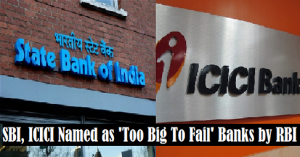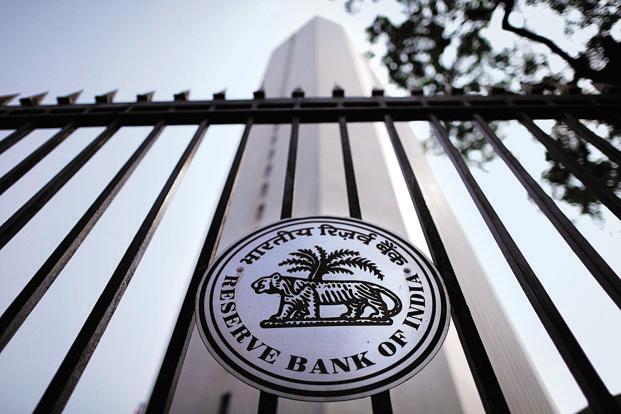
Too big to fail: RBI names SBI, ICICI as systemically important Banks
Reserve Bank of India (RBI) has released its list of Domestic Systemically Important Banks (D-SIBs) on Monday which included State Bank of India (SBI) and ICICI Bank. SBI and ICICI banks have been named as the domestic systemically important banks (D-SIBs) or “too big to fail” by the Reserve Bank of India. The designation, effectively declaring the banks “too big to fail”, was only applied by the central bank to the two lenders: India’s largest state-owned bank and its largest private sector bank.

This means the banks, as per the norms, are required to keep additional capital reserves and their failure would have to be prevented at any cost to prevent the calamitous effects it would otherwise have.
This is the first time; the central bank has designated any banks as D-SIBs. RBI had introduced the concept of D-SIBs after failure of number of large banks during the 2008 global financial crisis. This will now be an annual practice every August. In 2013, RBI had said four to six banks will qualify D-SIB category, names of which will be released in August every year.
The capital requirement for SBI and ICICI Bank will rise by 0.6% and 0.2% respectively for being identified as SIBs. The new capital norm for the two banks will be applicable from 1 April, 2016 and will become effective within three years.
The central bank said that SBI and ICICI have been so designated on the basis of a systemic importance score, arrived at after an analysis of the banks’ size as a percentage of annual Gross Domestic Product (GDP). Banks with assets that exceed 2% of GDP will be considered to be part of this class of lenders. Currently, the country’s largest lender SBI has total assets worth just over Rs 20 lakh crore while the second largest bank ICICI Bank has nearly Rs 6.5 lakh crore of total assets. As of 30 June, SBI’s loan book was worth Rs.12.8 trillion and ICICI’s loan book was close to Rs.4 trillion.
The SBI will need additional Rs 11,400 crore to meet the new capital norm and the ICICI Bank requires Rs 1,440 crore, according to an India Ratings report.
“From regulatory perspective, SBI and ICICI will have the highest level of systemic importance, but other banks, for example, large public sector banks like Bank of Baroda or Punjab National Bank, will have significant strategic importance,” said Naresh Takkar, managing director and group CEO of rating agency Icra Ltd.
“This is a signal that the two banks chosen are in a different level in terms of importance to the financial system,” Takkar said.
All banks have been given time until April 2019 to meet the additional requirements. RBI intends to review the list of SIBs once every year from now on.
“RBI has named State Bank of India as Domestic Systemically Important Bank as expected. However, the additional capital requirement of Tier I Capital has been lowered by 20 bps (basis points) as compared to the draft guidelines. SBI currently has a much higher level of Tier I at 9.62% as opposed to 7.00% required under the current guidelines,” said Arundhati Bhattacharya, chairperson of SBI, in an emailed statement.
Bringing SBI under D-SIB category will not impact the bank’s profit and loss margin in the near term,” Pratip Chaudhuri, former SBI Chairman told.